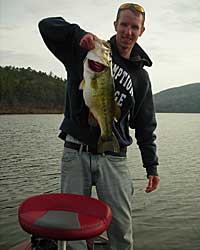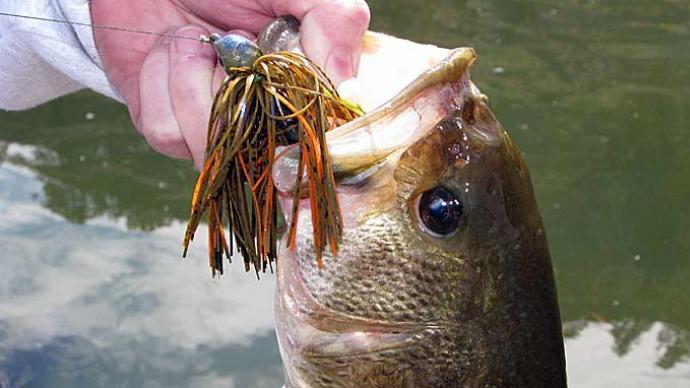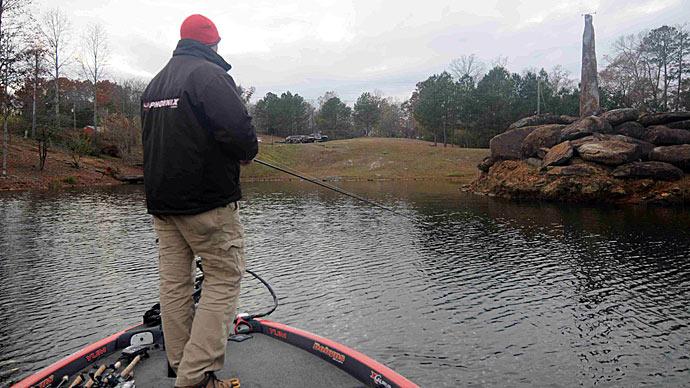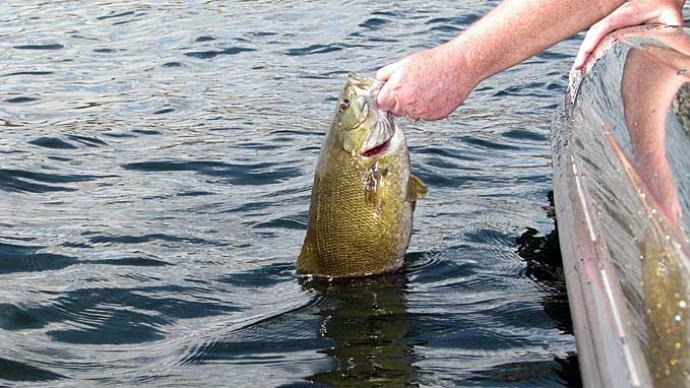
During my tournament fishing years, I came to expect the bass that bit well on Thursday and Friday would not be as cooperative on Saturday and Sunday. I also knew the techniques that worked during the week wouldn't be as effective come Saturday afternoon.
Why the predictable change? Fishing pressure. During the week, bass are given a chance to settle down on traditional structure and eat naturally without being harassed by a constant bombardment of lures. But as the weekend grows nearer and more fishermen pressure those areas, fish become edgy and take on a more defensive posture.
A bass is a predator, but man's presence will change its behavior pattern 100 percent. Experience teaches fish that when lots of boats are overhead, danger is imminent.
When instinct kicks in, bass become more reluctant to move far from cover or to chase baits carelessly. Instead of positioning along the edge of brush or a grassline, they'll retreat into thick cover where lures rarely venture.
That doesn't mean bass leave the area or can't be caught. But you will have to make adjustments in lure presentations to suit the mood of the fish better. If you were catching them on spinnerbaits and crankbaits when they were aggressive, you might have to make more accurate casts and literally bang lures in the cover to trigger a strike. If you're fishing plastic worms and jigs, penetrate the cover deeper, fish more slowly, and keep the bait in the strike zone longer.
An excellent example of this happened to me a few years ago in a tournament on Lake of the Ozarks. During mid-week practice, the bass were blasting jerkbaits right next to the boat. However, after a couple of days of jerkbait fishing by nearly 300 anglers, the fish became wary. Some would follow the bait, but they were hesitant to strike.
To adjust to their mood, I switched to a floating lizard weighted with a small split shot. I made long casts and allowed the bait to sink slowly, twitching it around the cover. I began to catch fish again and did well in the tournament.
When those adjustments don't work on traditional structures, avoid the heavily pressured areas and target the less attractive spots that other anglers ignore. You may not find as many fish holding there, but the ones there will be more aggressive.
Fishing pressure isn't the only reason reservoir bass become more challenging to catch on weekends. Lakes that are used to generate electricity are more productive during the week because more water is pulled through the turbines to produce electricity. The manmade current bunches baitfish and bass on structure and triggers heavy feeding activity. When the dam wheels aren't churning, baitfish scatter, and bass are less enthusiastic about feeding.
Furthermore, weekend boat traffic on a clear lake can help fishing because the boat wakes will muddy up the clay points. Fish seek security in those stained water areas and may become easier to catch.
The lesson is that you must be flexible in your approach to weekend fishing. If the action begins to slow as the weekend develops, adjust your lure presentations and take advantage of the opportunities that Mother Nature offers.
For more articles, quick tips, and much more, visit HankParker.com.




